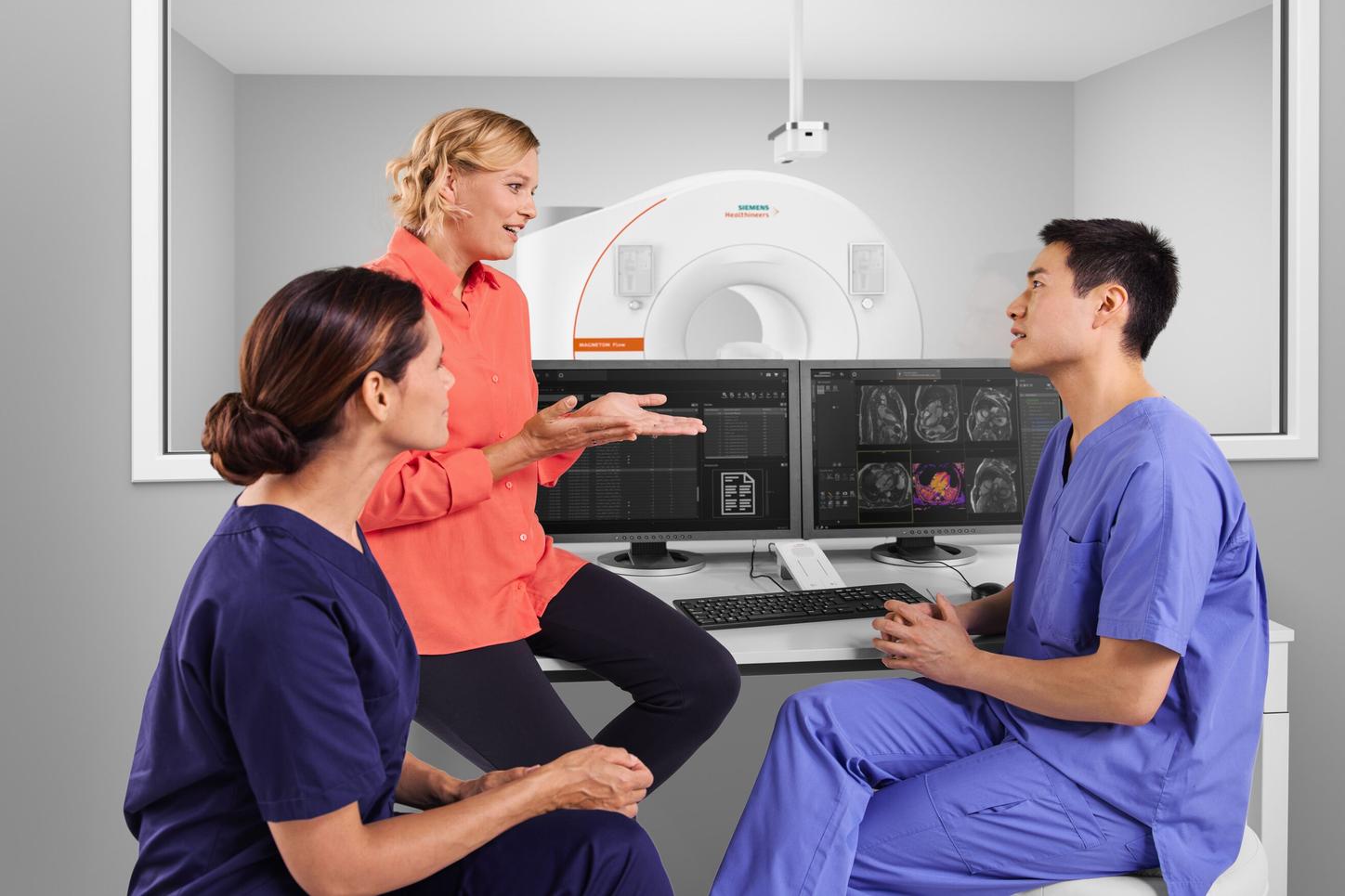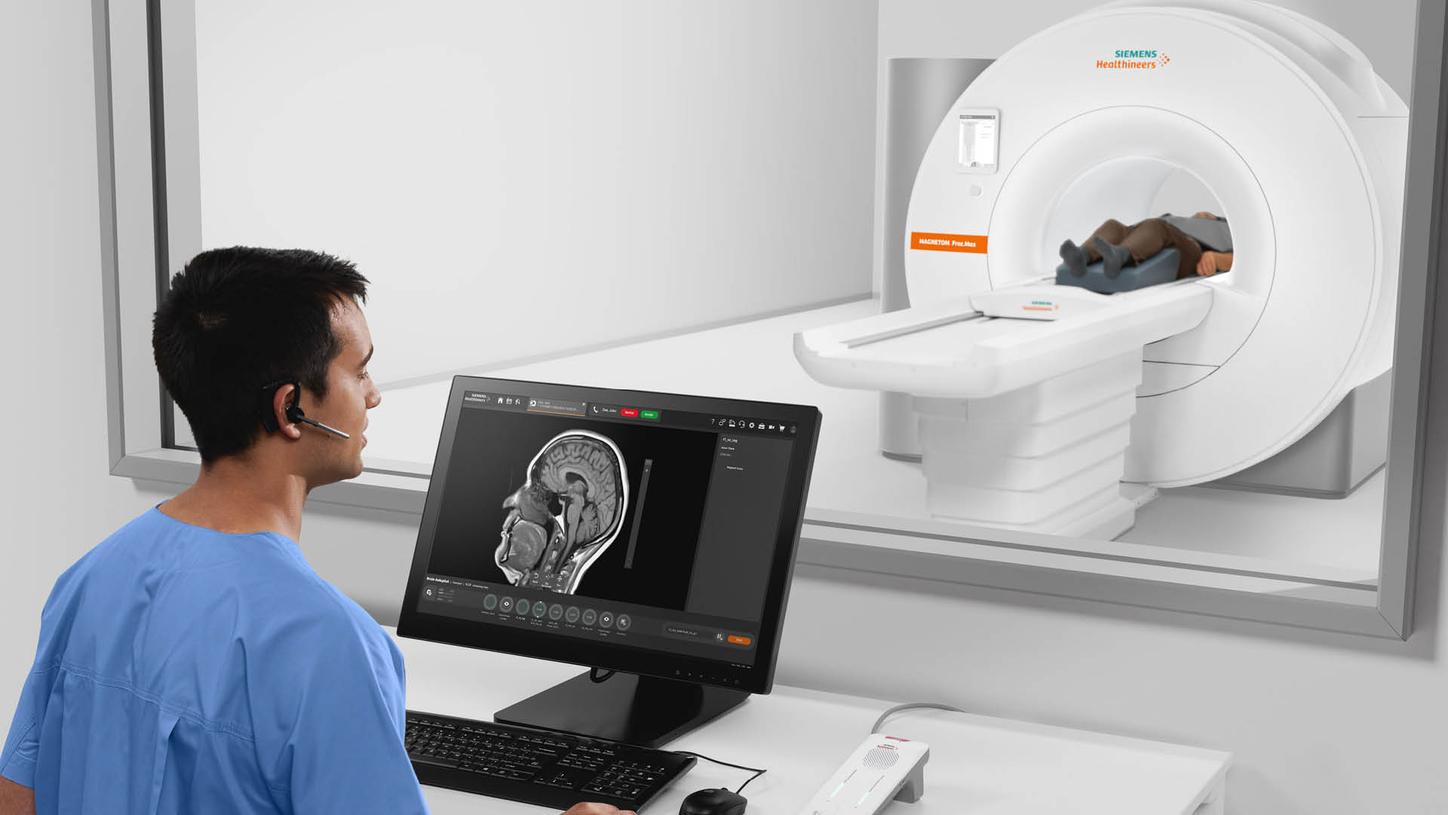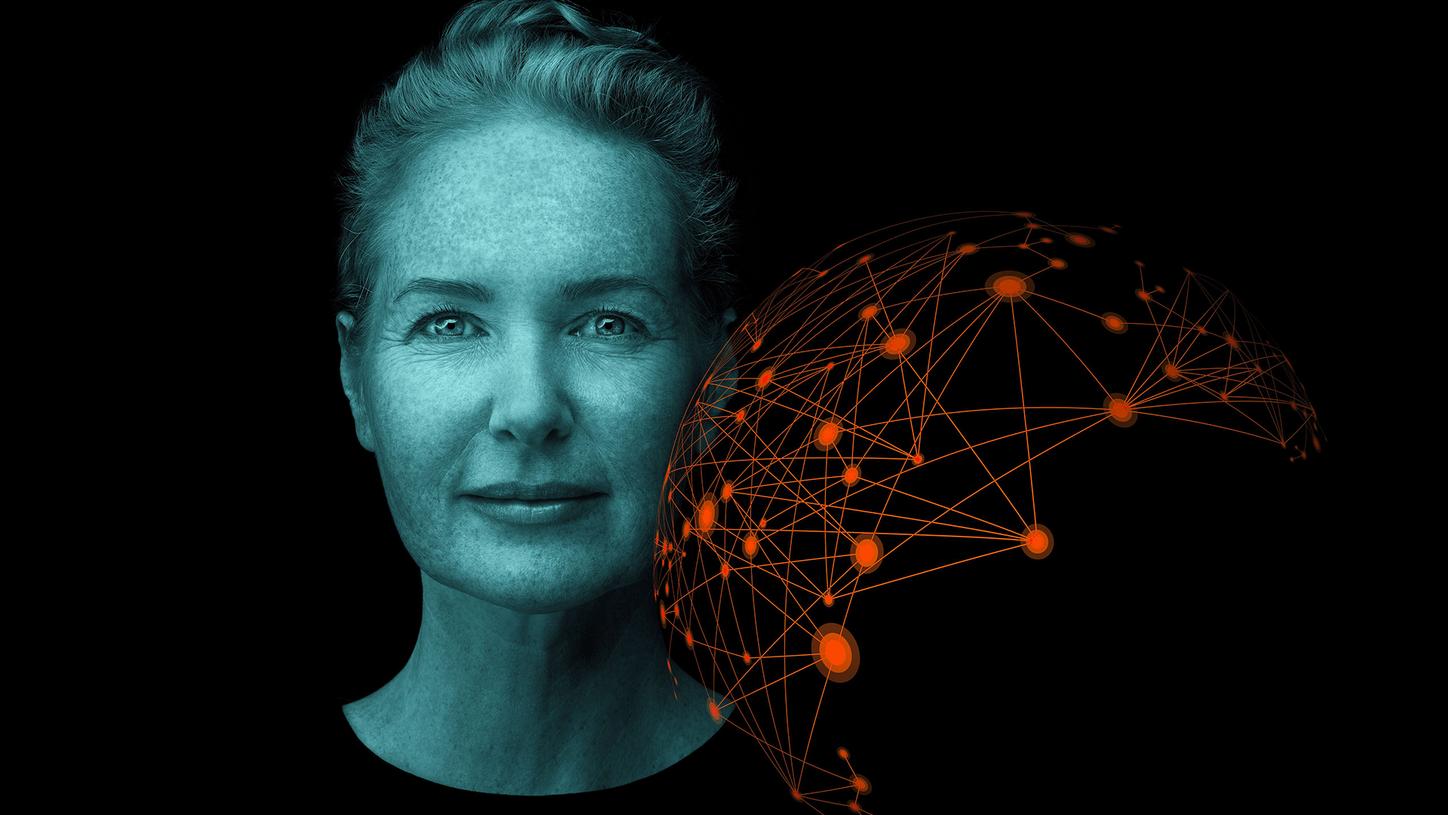Magnetic Resonance Imaging (MRI) Education

The Hybrid Approach to Education

Our hybrid learning solutions impart both knowledge and competence with a mix of personal, remote, and virtual learning formats. They are not about certain technologies or didactic methods being superior to others but about finding the ideal mix and combination for every learner.
With a hybrid approach to learning, you can enhance staff competency, increase workforce productivity, optimize clinical operations, and build a strong education strategy to sustain your workforce.
Discover MR Education on the Siemens Healthineers Academy
The Siemens Healthineers Academy is our learning management platform that empowers you to take charge of your professional growth with competency-based education designed to match your skill level and goals. Whether you’re looking to sharpen expertise, gain continuing education credits, or increase efficiency in daily work, you’ll find tailored resources that make learning practical and rewarding.
With Siemens Healthineers Academy you can:
Keep pace with changing technologies and standards of care
Complete interactive online trainings from any device
Track progress with clear, personalized learning paths
Manage classroom and virtual instructor-led events seamlessly
Share your learning journey with peers and colleagues
Protocol Preparation & Optimization

Hit the ground running and elevate your training experience with our Protocol Preparation & Optimization service.
Included in our recommended education packages, this offering is designed to ensure you and your staff are set up for success from day one. Whether you're preparing for a new system—enhancing your basic protocols ahead of onsite training to make the most of your Clinical Education Specialist’s time—or looking to optimize at any point in your system’s lifecycle, we’ve got you covered. This includes onboarding new clinicians, post-upgrade adjustments, or simply refreshing your protocol tree. Let us support you by expertly refining existing protocols or developing new ones tailored to maximize the efficiency of your MAGNETOMR MR systems.
To meet a variety of needs, this service is available in different hour blocks—allowing you to select the right level of support based on the number of protocols and the depth of work required.
Onsite Training

Onsite education support brings Siemens Healthineers Clinical Education Specialists directly to your facility to deliver personalized, hands-on training. Tailored to your team’s specific systems and clinical goals, these sessions provide in-depth instruction, workflow optimization, and real-time guidance in your own environment. Whether you're onboarding new staff, adopting advanced applications, or refining protocols, onsite support ensures your team gains the confidence and skills needed to maximize system performance and deliver exceptional patient care.
For new MAGNETOM system owners, be sure to review our Site Readiness documents to ensure your facility and staff are fully prepared for system turnover education.
Classroom Trainings

Prepare your staff with MR Classroom Trainings
Expand your systems skills, and knowledge, and learn more about the capabilities of your MAGNETOM MR system from medical experts. Share experiences and network with other Siemens Healthineers users in a classroom or virtual environment.
Click the arrows below to view all trainings:
MR IDEA Imaging Calculation Programming
This course trains researchers and clinicians to develop custom image reconstruction programs using IDEA software on MAGNETOM MR systems. Through lectures, hands-on labs, and scanner demos, participants gain the skills to design and implement investigational reconstruction programs for research. A companion course, MR IDEA Sequence Programming, focuses on pulse sequence development.
Duration: 4 Days (Virtual)
MAGNETOM MR System Essentials | Numaris X Classroom
This in-person course introduces healthcare professionals to the user interface and operating software of Siemens MAGNETOM MR systems. Through lectures and instructor-led practice, participants learn core principles and workflows for conducting patient examinations with confidence.
Duration: 3.5 Days (Cary, NC)
MAGNETOM MR System Essentials | Numaris X Virtual Classroom
This virtual course introduces healthcare professionals to core features and workflows of Siemens MAGNETOM MR systems with Numaris X software. Through lectures and guided practice, participants gain confidence using the myExam interface and performing standard patient workflows.
Duration: 4 Days (Virtual)
MR Advanced Applications Classroom
This in-person course is designed for medical professionals seeking to refine their MR expertise. Participants will explore advanced topics including sequence and parameter optimization, acceleration techniques, metal artifact reduction, and Deep Resolve. The course emphasizes practical strategies to enhance image quality, manage artifacts, and improve SNR and CNR for advanced clinical performance. Instructor-led practice sessions are performed on volunteers using a Siemens Healthineers MAGNETOM MR system.
Duration: 3 Days (Cary, NC)
MR Advanced Applications Virtual Classroom
This virtual course is designed for medical professionals looking to deepen their expertise in MR techniques. Participants will explore sequence optimization, acceleration methods, metal artifact reduction, and Deep Resolve technologies. The course emphasizes practical strategies to enhance image quality, manage artifacts, and improve SNR and CNR for advanced clinical performance.
Duration: 3 Days (Virtual)
Introduction to Cardiac MR Imaging (Numaris X) Classroom Training
The Introduction to Cardiac Imaging class introduces the principles and clinical applications of cardiovascular imaging. Participants will learn the basic principles and workflow for cardiovascular imaging through lecture and instructor-led demos. Instructor-led practice sessions are performed on cardiac volunteers using a Siemens Healthineers MAGNETOM MR system.
Duration: 4 Days (Cary, NC)
MR Breast Clinical Insights and Techniques - Numaris X
The MR Clinical Insights & Techniques course is for medical professionals looking to advance their expertise in MR breast imaging. Participants will delve into MR Breast imaging sequences, parameters, Deep Resolve Boost, and image quality. By the end of the course, they will be able to identify and optimize MR breast sequences and parameters, understand factors affecting image quality, and learn methods to reduce artifacts.
Duration: 3 Days (Cary, NC)
MR Physics
This introductory course provides MR technologists with a deeper understanding of the physical principles behind MRI. Through lecture-based instruction, participants explore system functionality, sequence design, artifact causes, and how user inputs influence system behavior—building confidence in MRI physics, image contrast, and clinical applications.
Duration: 4.5 Days (Virtual)
IDEA Sequence Programming
This course equips MR physicists and physicians to design and implement investigational pulse sequences using IDEA software on MAGNETOM MR systems. Through lectures, hands-on labs, and scanner demos, participants gain practical experience in pulse sequence design and development. A companion course, MR IDEA Imaging Calculation Programming, focuses on image reconstruction techniques.
Duration: 5 Days (Virtual)
MR IDEA Imaging Calculation Programming
This course trains researchers and clinicians to develop custom image reconstruction programs using IDEA software on MAGNETOM MR systems. Through lectures, hands-on labs, and scanner demos, participants gain the skills to design and implement investigational reconstruction programs for research. A companion course, MR IDEA Sequence Programming, focuses on pulse sequence development.
Duration: 4 Days (Virtual)
MAGNETOM MR System Essentials | Numaris X Classroom
This in-person course introduces healthcare professionals to the user interface and operating software of Siemens MAGNETOM MR systems. Through lectures and instructor-led practice, participants learn core principles and workflows for conducting patient examinations with confidence.
Duration: 3.5 Days (Cary, NC)
MAGNETOM MR System Essentials | Numaris X Virtual Classroom
This virtual course introduces healthcare professionals to core features and workflows of Siemens MAGNETOM MR systems with Numaris X software. Through lectures and guided practice, participants gain confidence using the myExam interface and performing standard patient workflows.
Duration: 4 Days (Virtual)
MR Advanced Applications Classroom
This in-person course is designed for medical professionals seeking to refine their MR expertise. Participants will explore advanced topics including sequence and parameter optimization, acceleration techniques, metal artifact reduction, and Deep Resolve. The course emphasizes practical strategies to enhance image quality, manage artifacts, and improve SNR and CNR for advanced clinical performance. Instructor-led practice sessions are performed on volunteers using a Siemens Healthineers MAGNETOM MR system.
Duration: 3 Days (Cary, NC)
MR Advanced Applications Virtual Classroom
This virtual course is designed for medical professionals looking to deepen their expertise in MR techniques. Participants will explore sequence optimization, acceleration methods, metal artifact reduction, and Deep Resolve technologies. The course emphasizes practical strategies to enhance image quality, manage artifacts, and improve SNR and CNR for advanced clinical performance.
Duration: 3 Days (Virtual)
Introduction to Cardiac MR Imaging (Numaris X) Classroom Training
The Introduction to Cardiac Imaging class introduces the principles and clinical applications of cardiovascular imaging. Participants will learn the basic principles and workflow for cardiovascular imaging through lecture and instructor-led demos. Instructor-led practice sessions are performed on cardiac volunteers using a Siemens Healthineers MAGNETOM MR system.
Duration: 4 Days (Cary, NC)
MR Breast Clinical Insights and Techniques - Numaris X
The MR Clinical Insights & Techniques course is for medical professionals looking to advance their expertise in MR breast imaging. Participants will delve into MR Breast imaging sequences, parameters, Deep Resolve Boost, and image quality. By the end of the course, they will be able to identify and optimize MR breast sequences and parameters, understand factors affecting image quality, and learn methods to reduce artifacts.
Duration: 3 Days (Cary, NC)
MR Physics
This introductory course provides MR technologists with a deeper understanding of the physical principles behind MRI. Through lecture-based instruction, participants explore system functionality, sequence design, artifact causes, and how user inputs influence system behavior—building confidence in MRI physics, image contrast, and clinical applications.
Duration: 4.5 Days (Virtual)
IDEA Sequence Programming
This course equips MR physicists and physicians to design and implement investigational pulse sequences using IDEA software on MAGNETOM MR systems. Through lectures, hands-on labs, and scanner demos, participants gain practical experience in pulse sequence design and development. A companion course, MR IDEA Imaging Calculation Programming, focuses on image reconstruction techniques.
Duration: 5 Days (Virtual)
MR IDEA Imaging Calculation Programming
This course trains researchers and clinicians to develop custom image reconstruction programs using IDEA software on MAGNETOM MR systems. Through lectures, hands-on labs, and scanner demos, participants gain the skills to design and implement investigational reconstruction programs for research. A companion course, MR IDEA Sequence Programming, focuses on pulse sequence development.
Duration: 4 Days (Virtual)
Advanced Education Support

Advanced Education Support (AES/AES+) from Siemens Healthineers delivers flexible, on-demand clinical education to help your team overcome procedural challenges and knowledge gaps. Customers can conveniently schedule their own virtual sessions—available within 24–48 hours—based on their needs. With optional onsite support available through our Premium package, AES ensures your staff stays confident and capable across a range of clinical scenarios. Designed to complement your existing training, AES enhances operational efficiency and supports continuous learning across MR, CT, PET, SPECT, Mammography, and X-ray systems.
FlexEd

Changing clinical environments demand flexible education offerings to optimize advanced system features, workflows and patient care. With FlexEd you get the education you need, when you need it most. With FlexEd, customers use a flexible spending credit redeemable for clinical education-specific programs and services. FlexEd addresses all of your educational needs from installation of your new equipment on through the entire lifecycle of your service plan.
Customized Workshops

Tailor your education with customized workshops
Our customized workshops deliver accredited MR education through a blend of lecture and instructor-led, hands-on sessions using our cloud-based MAGNETOM MR SmartSimulators. Facilities can choose from dedicated topics or build a tailored agenda from modular content. Each 4-hour session is exclusive to your site and accommodates up to six attendees.
Click the arrows below to view all trainings:
Customized Modules
In addition to the dedicated workshop topics, customers do have the ability to customize their workshop from a list of accredited modules.
For module topics and descriptions, see the Virtual Education section below.
MR Fundamentals – Numaris X
The MR Fundamentals Numaris X virtual offering introduces the MR technologists familiar with previous software versions to the new user interface and operating software on Siemens MAGNETOM MR systems. Participants will learn the basic principles and workflow for patient examinations using lecture, and instructor-led demo.
Duration: 4 Hours
Cardiac Fundamentals
The MR Cardiac Fundamentals workshop introduces the principles and clinical applications of cardiovascular imaging. Participants will learn about cardiac anatomy, localization, tissue characterization, and functional imaging techniques.
Duration: 4 Hours
Breast Fundamentals
The MR Breast Fundamentals workshop provides an introduction to the principles and clinical applications of breast imaging. Participants will enhance their understanding of safety considerations, breast anatomy and pathology imaging, implant imaging, and techniques for optimizing image quality.
Duration: 4 Hours
Protocol Building – myExam Cockpit
This workshop is designed for Technologists who are responsible for protocol development and maintenance at their facility. Participants will learn the basic principles and workflow of building and modifying myExam Assist, myExam Autopilot and standard clinical protocols through lecture, instructor-led demo, and instructor-led practice using MAGNETOM MR SmartSimulators.
Duration: 4 Hours
Customized Modules
In addition to the dedicated workshop topics, customers do have the ability to customize their workshop from a list of accredited modules.
For module topics and descriptions, see the Virtual Education section below.
MR Fundamentals – Numaris X
The MR Fundamentals Numaris X virtual offering introduces the MR technologists familiar with previous software versions to the new user interface and operating software on Siemens MAGNETOM MR systems. Participants will learn the basic principles and workflow for patient examinations using lecture, and instructor-led demo.
Duration: 4 Hours
Cardiac Fundamentals
The MR Cardiac Fundamentals workshop introduces the principles and clinical applications of cardiovascular imaging. Participants will learn about cardiac anatomy, localization, tissue characterization, and functional imaging techniques.
Duration: 4 Hours
Breast Fundamentals
The MR Breast Fundamentals workshop provides an introduction to the principles and clinical applications of breast imaging. Participants will enhance their understanding of safety considerations, breast anatomy and pathology imaging, implant imaging, and techniques for optimizing image quality.
Duration: 4 Hours
Protocol Building – myExam Cockpit
This workshop is designed for Technologists who are responsible for protocol development and maintenance at their facility. Participants will learn the basic principles and workflow of building and modifying myExam Assist, myExam Autopilot and standard clinical protocols through lecture, instructor-led demo, and instructor-led practice using MAGNETOM MR SmartSimulators.
Duration: 4 Hours
Customized Modules
In addition to the dedicated workshop topics, customers do have the ability to customize their workshop from a list of accredited modules.
For module topics and descriptions, see the Virtual Education section below.
Virtual Education

Flexible Remote Training
Virtual education offers flexible, remote training in hourly increments—from 2 to 28 hours—for up to two imaging professionals. Sessions can be customized to include accredited learning modules with simulator time or direct system support via Siemens Remote Services (SRS/SRA). Training is tailored to your team’s clinical and operational needs, with select open enrollment options also available on Siemens Healthineers Academy.
Fellowships/Partnerships

Elevate your staff with physician-partnered fellowships and partnerships
Siemens Healthineers partners with leaders in the industry to provide additional training in Magnetic Resonance Imaging topics.
Did this information help you?
Thank you.



